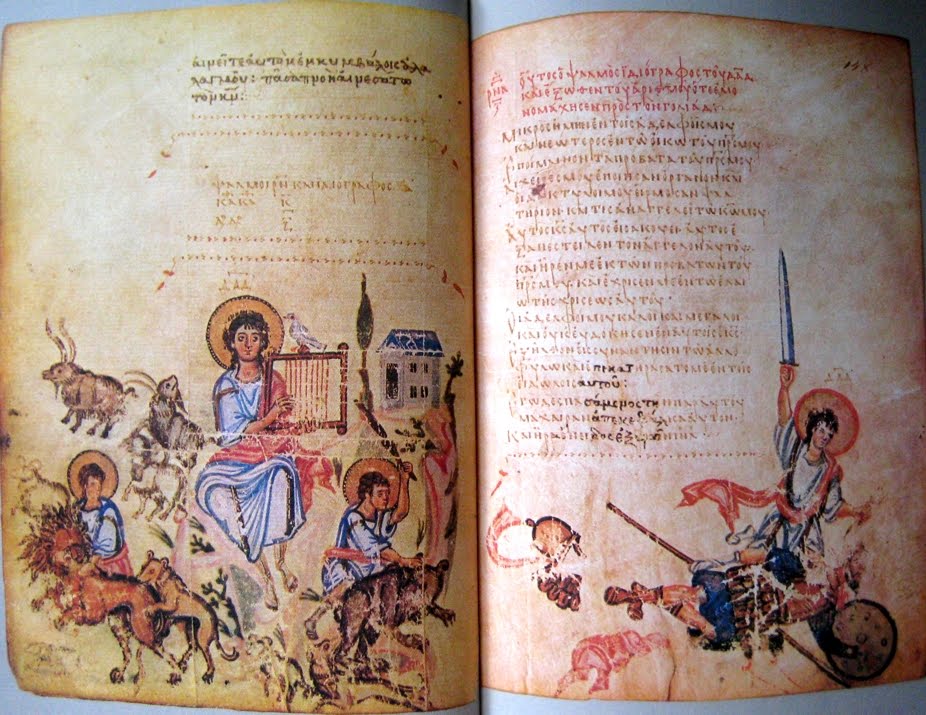All scripture is inspired by God and is useful, composed by the Spirit for this reason, namely, that we men, each and all of us, as if in a general hospital for souls, may select the remedy for his own condition. For, it says, “care will make the greatest sin to cease.” (Eccles10:4) Now, the …
All scripture is inspired by God and is useful, composed by the Spirit for this reason, namely, that we men, each and all of us, as if in a general hospital for souls, may select the remedy for his own condition. For, it says, “care will make the greatest sin to cease.” (Eccles10:4) Now, the prophets teach one thing, historians another, the law something else, and the form of advice found in the proverbs something different still. But, the Book of Psalms has taken over what is profitable from all. It foretells coming events, it recalls history, it frames laws for life, it suggests what must be done, and in general, it is the common treasury of good doctrine, carefully finding what is suitable for each one. The old wounds of souls it cures completely, and to the recently wounded it brings speedy improvement. The diseased it treats, and the unharmed it preserves. On the whole, it removes, as far as is possible, the passions, which subtly exercise dominion over souls during the lifetime of man, and it does this with a certain orderly persuasion and sweetness which produces sound thoughts.
When, indeed, the Holy Spirit saw that the human race was guided only with difficulty toward virtue, and that, because of our inclination toward pleasure, we were neglectful of an upright life, what did He (the Holy Spirit) do? The delight of melody He mingled with the doctrines so that by the pleasantness and softness of the sound heard we might receive without perceiving it the benefit of the words, just as wise physicians who, when giving the fastidious rather bitter drugs to drink, frequently smear the cup with honey. Therefore, He devised for us these harmonious melodies of the psalms, that they who are children in age or even those who are youthful in disposition might to all appearances chant. For never has any one of the many indifferent persons gone away easily holding in mind either an apostolic or prophetic message, but they do chant the words of the psalms, even in the home, and they spread them around in the market place, and, if perchance, someone becomes exceedingly wrathful, when he begins to be soothed by the psalm, he departs with the wrath of his soul immediately lulled to sleep by means of the melody.
Oh! the wise invention of the teacher who contrived that while we were singing we should at the same time learn something useful; by this means, too, the teachings are in a certain way impressed more deeply on our minds. Even a forceful lesson does not always endure, but what enters the mind with joy and pleasure somehow becomes more firmly impressed upon it. What, in fact, can you not learn from the psalms? Can you not learn the grandeur of courage, the exactness of justice, the nobility of self-control, the perfection of prudence, a manner of penance, the measure of patience, and whatever other good things you might mention? Therein is perfect theology, a prediction of the coming of Christ in the flesh, a threat of judgment, a hope of resurrection, a fear of punishment, promises of glory, an unveiling of mysteries; all things, as if in some great public treasury, are stored up in the Book of Psalms. To it, although there are many musical instruments, the prophet adapted the so called harp, showing, as it seems to me, that the gift from the Spirit resounded in his ears from above. With the cithara and the lyre the bronze from beneath responds with sound to the plucking, but the harp has the source of its harmonic rhythms from above, in order that we may be careful to seek the things above and not be borne down by the sweetness of the melody to the passions of the flesh. And I believe this, namely, that the words of prophecy are made clear to us in a profound and wise manner through the structure of the instrument, because those who are orderly and harmonious in soul possess an easy path to the things above.
(From The Fathers of the Church : St Basil Exegetical Homilies Vol: 46)
Join Us: Sign Up Today!











